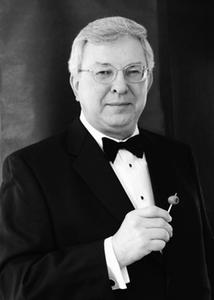 |
|
| Henry Petroski | |
Henry Petroski, "who demystified engineering with literary examinations of the designs and failures of large structures like buildings and bridges, as well as everyday items like the pencil and the toothpick," died June 14, the New York Times reported. He was 81. A longtime professor of civil and environmental engineering at Duke University, Petroski "adapted the architectural axiom 'form follows function' into one of his own--'form follows failure'--and addressed the subject extensively in books, lectures, scholarly journals, and magazines."
"Failure is central to engineering," he said in a 2006 Times profile. "Every single calculation that an engineer makes is a failure calculation. Successful engineering is all about understanding how things break or fail."
In his first book, To Engineer Is Human: The Role of Failure in Successful Design (1985), Petroski examined what happens when design goes terribly wrong, citing the collapse in 1981 of two skywalks in the Kansas City Hyatt Regency Hotel, which killed 114 people; and the collapse in 1940 of the Tacoma Narrows Bridge in Washington a few months after it opened.
Shortly after the Hyatt Regency calamity, one of his neighbors asked him how such a thing could happen. "He wondered," Petroski wrote, "did engineers not even know how to build so simple a structure as an elevated skywalk?" The book was an attempt to define what an engineer is.
Pencils also became an object for Petroski's failure analysis. He used engineering equations in a 1987 paper in the Journal of Applied Mechanics to describe why pencil points break, then expanded the piece two years later into the book The Pencil: A History of Design and Circumstance.
Nearly two decades after The Pencil was published, Petroski "turned to an even humbler quotidian object with The Toothpick: Technology and Culture (2007), which explained its evolution from a form used by early hominids to the creation of the modern toothpick industry in the 19th century," the Times noted.
Petroski taught engineering at the University of Texas at Austin for six years before joining the Argonne National Laboratory in Lemont, Ill., in 1974. He left in 1980 for Duke, where his teaching schedule gave him the freedom to write about engineering. He retired in 2020.
Petroski's other books include The Evolution of Useful Things: How Everyday Artifacts--From Forks and Pins to Paper Clips and Zippers--Came to Be as They Are (1992); The Book on the Bookshelf (1999); Small Things Considered: Why There Is No Perfect Design (2003); To Forgive Design: Understanding Failure (2012); and The House With Sixteen Handmade Doors: A Tale of Architectural Choice and Craftsmanship (2014).
"He worked at the intersection of engineering and history," said Earl Dowell, a former dean of Duke's Pratt School of Engineering. "His readership included a wide range of engineers who enjoyed his books because they presented the bigger picture of engineering, not so much down in the details, and non-engineers."

